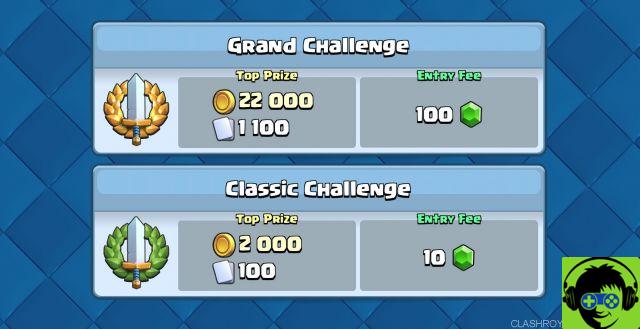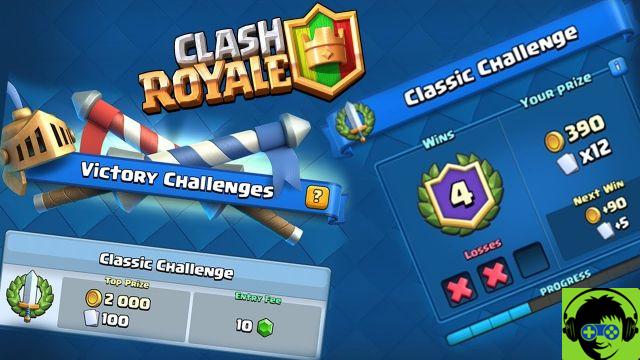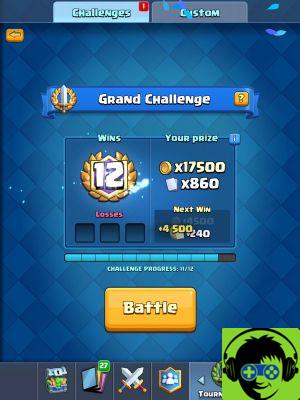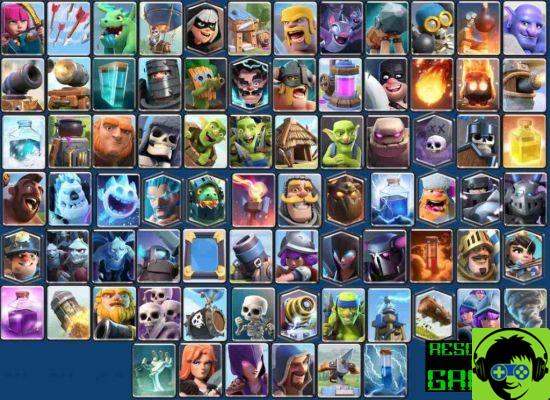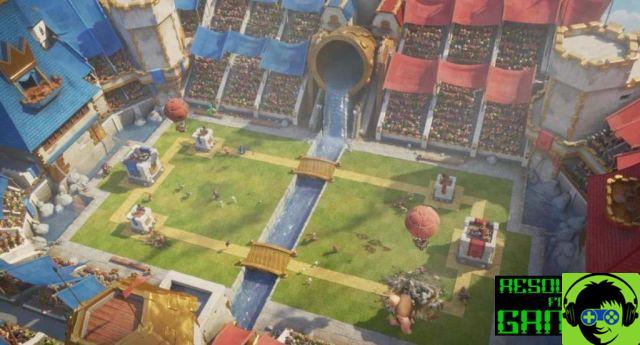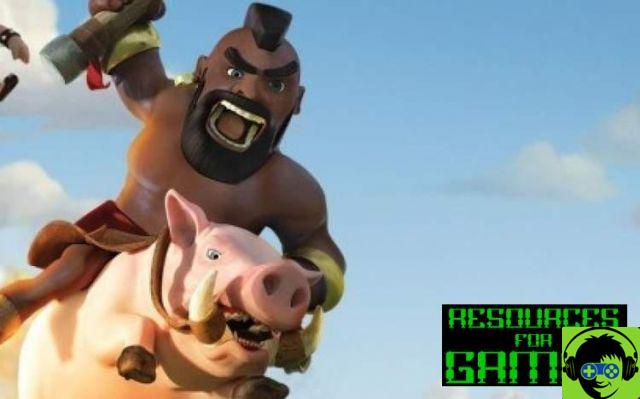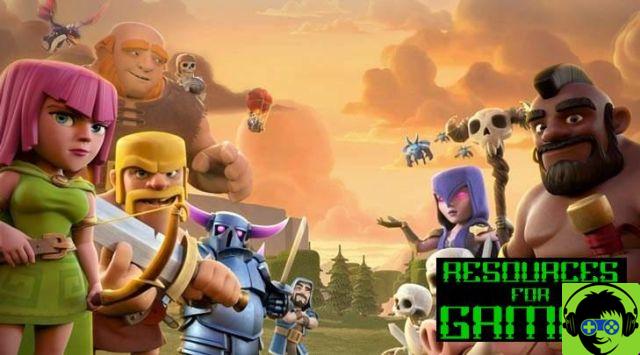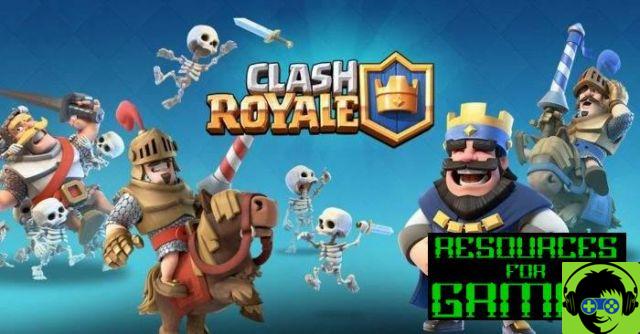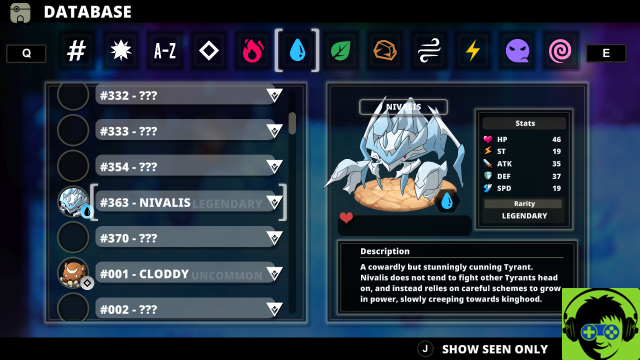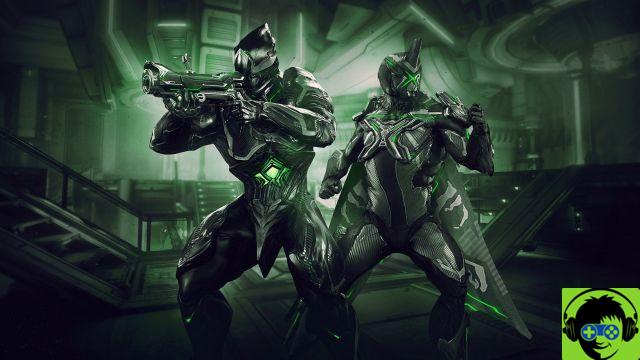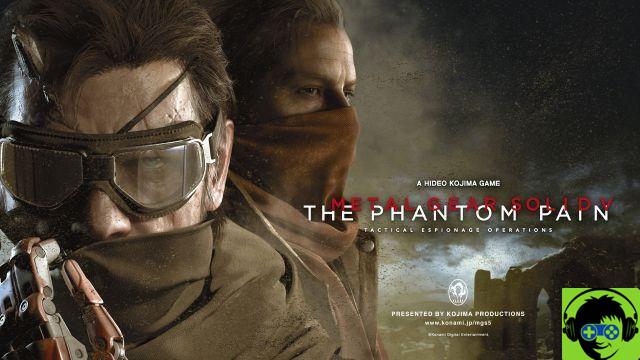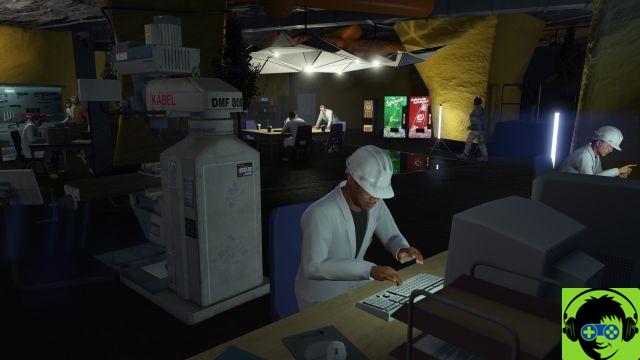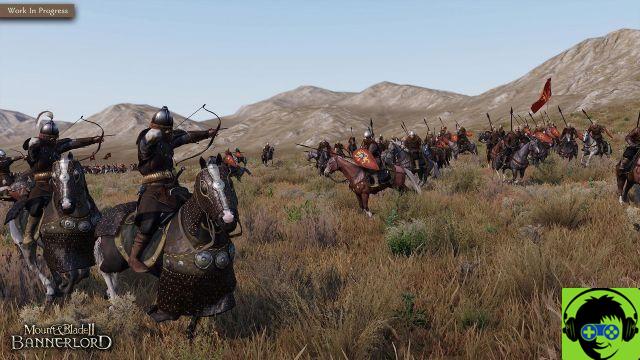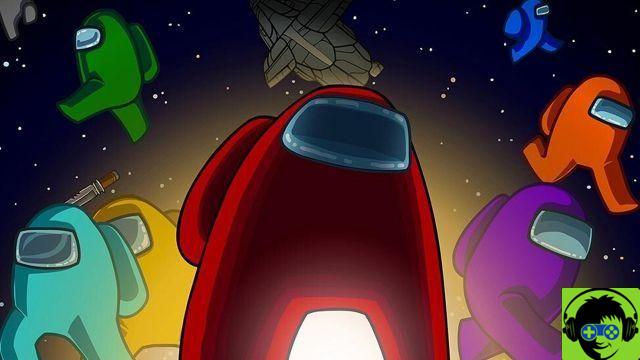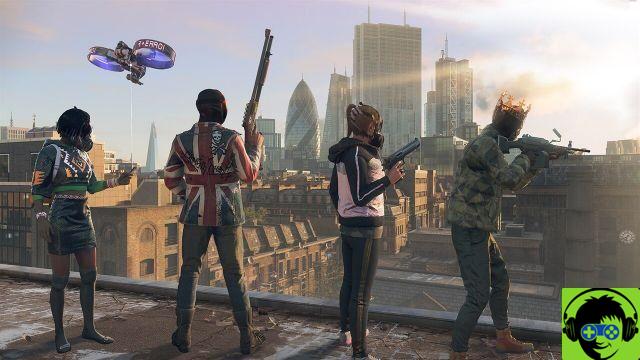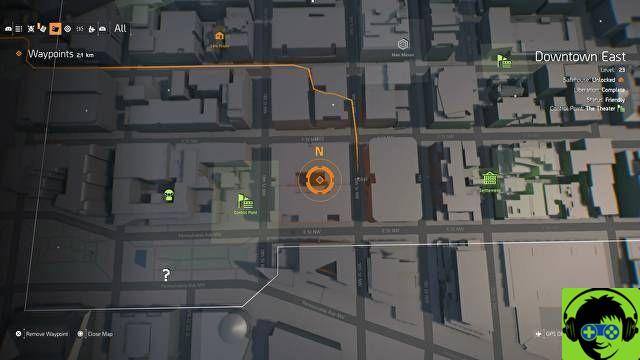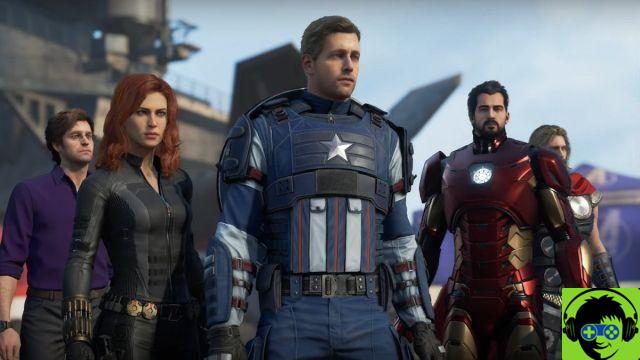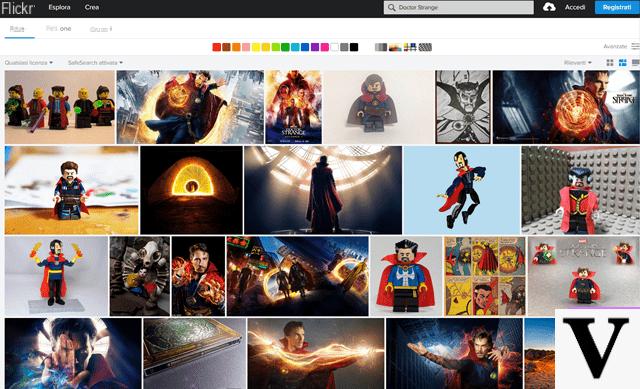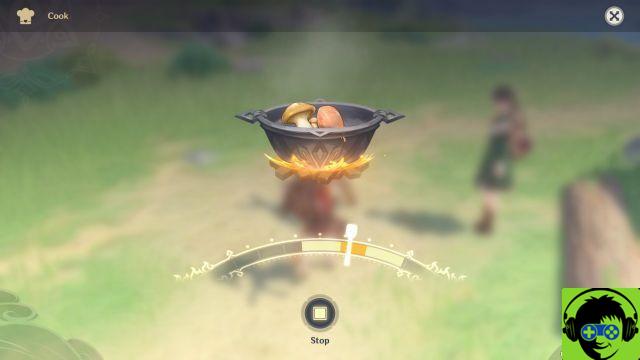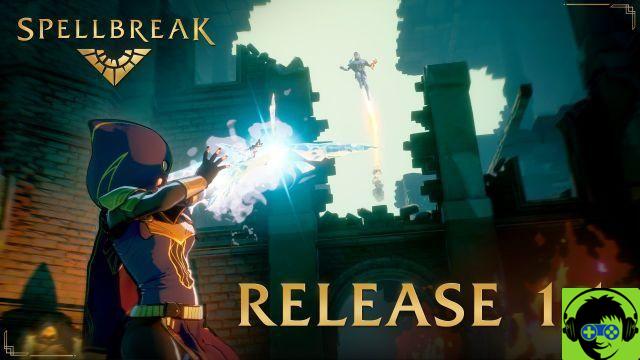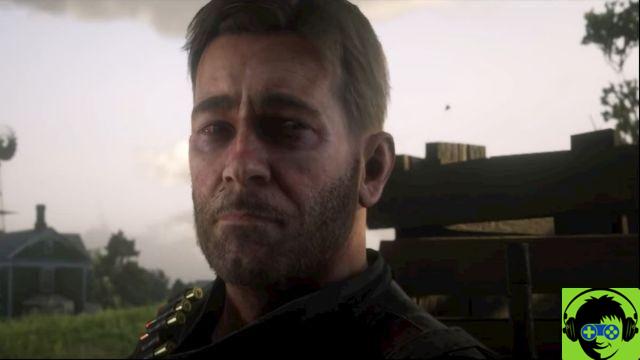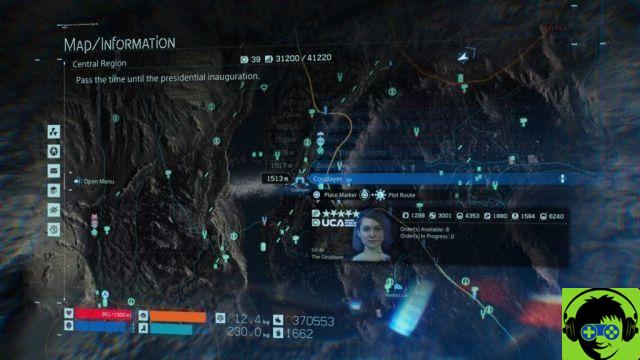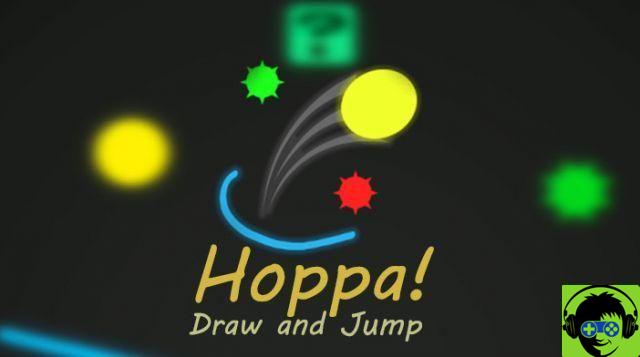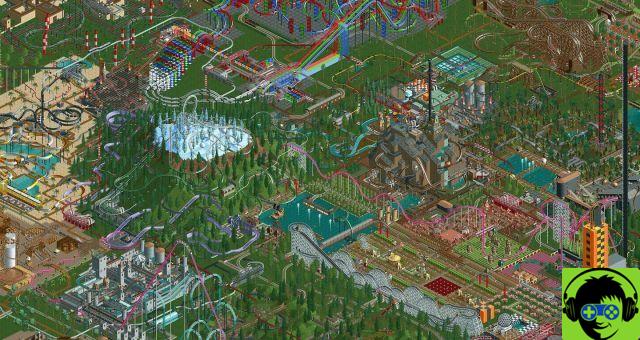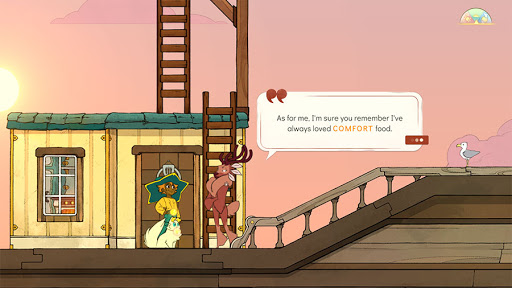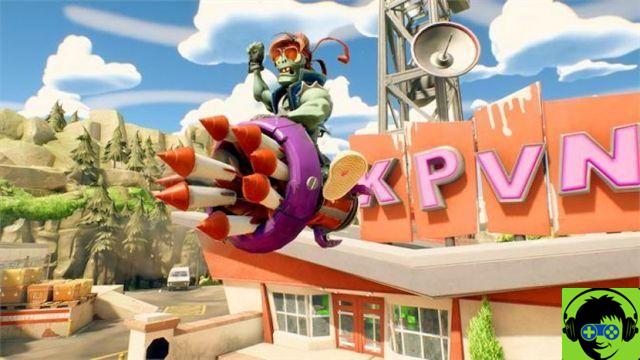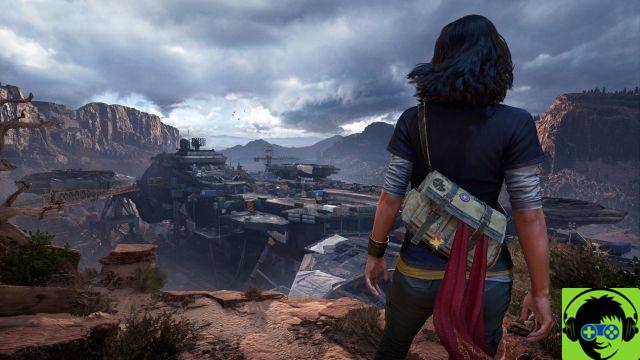Clash Royale is a mobile title that makes customization of their strategies and choice the daily bread of each player. In the course of this guide we will learn how to create a deck according to the goal that plagues the title trying to enhance it and modify it according to nature to become virtually indestructible players.
Obviously no deck will be synonymous with instant victory but fully understand the mechanisms behind each type of deck is what makes learning to Clash Royale a difficult question. During this papyrus we will try and simplify and rationalize as many concepts as possible, in the hope of reaching as many users as possible.
According to a great multitude of professional players and not in the world of Clash Royale creating an effective deck is half the work that every great player should do to get ahead with their skill level; having the right deck allows you to take down enemies more gifted than us at skill level, putting the weights back on the balance of the game.
Clash Royale guide - how many ways can I build a deck?
There are two great methods of creation that a player can undertake in the process of building their deck:
- The first method is to play the base deck and slowly add bits on bits to create synergies and build a working deck. This method of action is used by a very large majority of players and it's a rather frustrating process because you don't always understand exactly what works and what doesn't within your deck.
- The second method consists of analyzing the goal in which the deck will be played and building strategies that specifically counteract what the goal is formed. Building a bunch anti-meta is a tedious and expensive process but it can make you master the battlefield for many arenas and weeks.
In the course of this guide we will mainly focus on this second strategy of action through several focal points including goal understanding, goal analysis, deck construction and final adjustments
Clash Royale Guide - Division of goal
The first step each player should take when planning to build a new deck of Clash Royale is to understand where he's going to play. Understanding the goal starts first of all with the choice of your area of influence, i.e. the different types of games you are going to play.
The goal, for convenience we divide it into 4 macro-categories:
- Non maxata ladder: goal for all arenas that arrive before the five thousand trophies.
- Classic Challenge and Small Tournaments: The goal related to Classic Challenge Mode and small tournaments.
- Great Challenge: The goal for Great Challenge mode is much more competitive than the Classic Challenge mode.
- Maxata Ladder: A goal related to arenas above five thousand trophies, land of conquest for competitive and professional players.
Non maxata ladder.
This is the destination where the vast majority of players of Clash Royale she gets caught up in it. The goal of the arenas that precedes the world of the Clash Royale Competitive.
The goal within the arenas fluctuates incredibly depending on the league or arena in which the player finds himself interacting. Even 100 trophies of difference risk changing the pool of cards you find yourself fighting with.
During these arenas it is simply to level up the cards of common and rare rarity compared to Epic and Legendary cards. The cards to be considered as a win condition are the Chosen Barbarians, the Giant Royale, the Mortar, the Boar Tamer and the Giant. Including the card pool you need to understand how to adapt to the choices you can make but we will find out in the next paragraphs.
Classic challenge and small tournaments.
This goal is the most varied of the whole title, often even when Clash Royale ends up not being perfectly balanced. This is because at these levels players still have access to a huge pool of cards and use the majority of them, given the swinging ability that separates them.
There is no need to think of strategies to counter such a wide variety of decks and styles of play; it is more important to focus on your own style of play and try to increase your skill and knowledge of your resources to excel.
Great Challenge
Participating in a Great Challenge within Clash Royale it means you have a remarkable awareness of the level you're at. The majority of the people you come up against in this video game bracket ah a certain dexterity and a certain sense of the game.
The goal of the Great Challenges is the most competitive one you can access by playing Clash Royale without eSports player's ambition. Within the Great Challenges the goal is so competitive and varied that within a few days it is able to change to counter the goal of the previous day.
The strategy that asks players to create the decks anti-meta , as expected, is effective and is able to survive even daring variations in the game environment. The Great Challenges are the perfect training for all players who want to get serious and want to throw themselves into the world of competitive tournaments and maximum arenas.
Maxata Ladder
The Ladder Maxata is the end point of the goals of Clash Royale the Olympus of video gamers.
The skill level in such a goal is so high that the influence it generates on all other game pieces is tangible and can act as a director for the rest of the deckbuilding. The maxata ladder decks are the same as those found on the various specialized sites, decks created by professional or semi-professional players who need a lot of experience to drive them properly.
These decks are also very famous thanks to the world of streaming.
Clash Royale Guide - Understanding the goal
In order to be able to pull out a deck that can shine and shine you need to understand how it works, why it wins and why it loses. To do this the general advice is to pin down, in some form, which are the most used cards within your goal below these four categories that we're going to list;
- Win Condition: Win Condition are the conditions of victory, i.e. the cards through which a deck gets to win the game by destroying the towers.
- Support cards: Support troops are the glue that make a deck able to arrive at the moment of victory, help to take time and counteract the opponent's win condition.
- Defensive Cards: Defenses are the ways that a deck has to take time in a game, trying to prolong its survival.
- Spells: Spells are the all-do cards, both offensive and defensive, and they have the task of responding to certain opponent moves or preparing the ground for specific attacks.
There are cards that could also work as a win condition or as a defensive card (see, for example, the PEKKA). The more cards are included in the various categories, the easier it will be to find the necessary countermeasures and moves to perform as contrast.
Including a lot of cards within each category will be difficult to think about how to counter the opposing decks and you risk to create a deck that can only propose efficient reactions to the opponent's actions, without a soul and organicity able to bring it to victory.
Below we give an example of how this list could be made based on the goal of the non-maxed arenas:
Win Condition: Boar Tamer, Giant, Graveyard, and Lavic Hound
Supporting cards: Archers, Goblin Gang, Spirit of Fire, Horde of Skeletons, Hangman
Defensive Cards: Tombstone, Hell Tower, Furnace
Magic: Arrows, Rocket, Trunk, Download, Tornado
With this set of cards in mind, you can start building a deck with your own resources that can knock down the goal.
Clash Royale Help - Choose your deck type.
We have come to the point where you need to start to understand what kind of cards you want in your weapons. Let's start by looking at which cards we want to counter and take the complete list of the cards in the title.
The first question that needs to be asked is:
"What kind of player am I?
Am I a specialist or a generalist?"
The specialist is the typical player who only plays one or two types of deck and is able to use it extremely accurately.
The generalist, on the other hand, is the player who is able to play almost any type of deck at any speed, without pulling out the maximum potential.
To simplify the discussion behind what types of decks exist, it is appropriate to try to classify them according to two large groups of archetypes: the construction of the deck and the speed of the deck.
- Deck construction archetypes analyze offensive and defensive capabilities based on the game plan that you can follow by playing certain cards at certain times.
- The deck speed archetypes analyze the offensive and defensive capabilities of the deck based on the average resource cost of the cards in the deck.
There are three archetypes of construction:
Assault Decks: Decks with a balance between offensive and defensive possibilities; when these decks start building some kind of offensive activity, they defend themselves at the same time.
Siege Decks: The siege archetype asks the player to prevent as much damage as possible by trying to attack by filing the life points of the opposing towers. This archetype is primarily focused on defense and friction that can slowly knock down the opponent's towers. He is not able to change his strategy as quickly as the other two archetypes.
Control Decks: The Control archetype asks the player to play defensively and attack with everything you have just found a glimmer of advantage to hold onto. The Control archetype's defenses are unable to withstand the pressure of the opponent but must find a tactical advantage to move on to the attack as soon as possible.
There are three archetypes of speed:
Slow deck: A slow deck has an average cost of 3.8 Elixir or more, it takes a long time to inflict damage to the tower but is able to become unstoppable once it has the right resources on the field (both offensive and defensive). Its ultimate goal is to build a push, an attack force that cannot be stopped by enemy actions once you have an advantage in Elixir.
Average bunch: an average bunch has an average cost of 3.1-3.7 Elixir and is the most balanced of the various existing archetypes. It has decent offensive and defensive skills and can be played in reaction (i.e. responding to opponent's actions) or in action (by choosing what to do and how to behave each time). The best way to win with this kind of deck is to adapt to the opponent's speed to play accordingly.
Fast deck: a fast deck is a deck that has an average cost of 3.0 Elixir or less. It has a very strong offensive potential (due to the low cost of the cards it uses to attack) but is unable to defend itself properly. To defend itself it uses its resources to nullify the opponent's offensive, while trying to find the right cards to prepare an attack able to defeat the opponent's defenses.
Clash Royale Guide - What sense should my deck have?
Strengths and weaknesses of the various decks and the relationships between them can be schematized following these screens, originally made by the youtuber (and player) KairosTime.
These patterns are reminders, they are not the absolute truth.
Despite advantages and disadvantages, it still Clash Royale remains much influenced by the player's individual skill, a skill that you learn with time, game and experience.
Once you know what the dominant decks of your goal are, all you have to do is choose your position and figure out how to decline your deck.
What does it mean to decline a deck of Clash Royale ?
Decline a bunch of Clash Royale means giving him one of two possible senses: unity or balance.
- A deck declined according to the idea of balance will have a lot of cards in its deck with a variety of usefulness, able to have good feedback against virtually all types of decks in metal.
- A deck declined according to the unit idea will have a lot of cards with similar effects to try to make the most of a possible weakness. In doing so the deck will become incredibly powerful against other types of decks (depending on those that use opponents obviously) but it will also be weak against decks that for one reason or another are not attacked by the effects of the above cards.
Clash Royale Drive - Build the best possible deck.
Now let's get to the gist of the question: how can we build, piece by piece, a deck capable of moving us forward as players?
Let's start from an assumption: if we are trying to climb the arenas (which is likely) then it is necessary to understand that the cards differ in three macro-categories:
- WWU (Weak when underleveled): Cards that are weak if you don't have them at a good level.
- LI (Level Independent): Cards that are decent even if slightly under level with the opponent's.
- SWO (Strong when overleveled): Cards that are really strong when you have some level of advantage over your opponent.
Step 1 - decide the win condition
Choosing the win condition is one of the most important decisions you can make when it comes to choosing the deck you are going to play.
The card you choose as the primary win condition will influence in one way or another any kind of choice that will be made during the construction of the deck.
For example, it is important to first understand which cards are turning in the goal you are playing (which you should have done before, if you have followed the steps of this guide); including the goal you will need to choose cards that will not be hindered in a simple way by the defenses, support cards and spells of our opponent.
For example, in a goal full of cheap defensive cards such as the Cannon or Tombstone the right choice is the Miner card; in a goal without these cards the right choice is the Boar Tamer.
Below is a list of the main Win Conditions that are present within Clash Royale :
Mortar, Royale Giant, Chosen Barbarians, Giant, Tamer, Rocket, Battle Aries,, Three Musketeers, Goblin Barrel, Golem, Pekka, Bow-x, Balloon, Miner, Spark, Lava Mastiff, Cemetery
Once the main win condition has been chosen, the time has come to review the rest of the other cards that will support and help our choice, in an attempt to prepare the ground to unleash the unleashable.
To understand which card is opposed by which other card our advice is to rely on this tool. Select from the card pool what you want to examine and scroll down within the site; other cards, similar but more softened speech can be done for soft counter cards. Knowing the counters of certain cards is the best way to create a deck destined to destroy the current destination.
Step 2 - support your Win Condition.
Even if you choose the best possible win condition for your goal it is likely that some players are perfectly capable of playing around the proposed threats. To prevent this from happening you need to surround your win condition with cards that, in one way or another, are able to give it a hand through the way you play them.
The cards that support the win condition should be 1 or 2 and have the task of destroying the opponent's defenses while the win condition tries to get to the tower.
The types of cards to choose for the three main archetypes are the following:
- Assault Decks - For an Assault Deck, you should choose 1/2 cards that can heavily damage your opponent's tower if they are effectively defended by your win condition. These one or two cards would also have the task of effectively countering the most popular defense cards in some half.
- Control Decks - For a Control Deck you should choose 1/2 cards that have the task of helping your win condition to reach the tower to inflict as much damage as possible. In this case the support card could also be a spell or a set of creatures that can counter most of the threats within the goal.
- Siege Decks - For a siege deck you should choose 1/2 cards that can protect the win condition from the threats that are commonly thrown at it so that it can stabilize and start damaging the tower. The support cards typically used for this purpose are magic, troops of various kinds or other defensive structures.
Step 3 - Create a defense against the goal you face.
If you have followed our steps at the moment your deck Clash Royale should include two to three different cards; these are the cards that make up the offensive that can counter the goal you are going to face.
Now that we have the offensive you also need to choose the defensive strategy, to do so just choose two or three cards able to close the holes of the chosen strategy. Obviously these cards will have to be somehow natural obstacles of the win condition presented by the opponents.
Take the nice list we made before the win condition of the goal, observe how you want to build your deck and start entering what you think is suitable. Obviously you don't need only Hard Counter cards for each Win Condition you're going to face, you'll also need to think about cards that can face as many support cards as possible among those present on the list of the various cards we have drawn previously.
As the goal advances, the cards of our defense will vary more frequently than the others. When the goal adapts so much that your win condition no longer does, it is time to change your deck altogether.
Step 4 -Variables and corrections.
If you have followed this guide step by step you will have four to six different cards in your deck. Observing them carefully, you will immediately understand what the defenses inside that deck may be.
Now, to try to cover all the holes in our deck, it will be important to ask the right questions and figure out which cards to fill the last remaining slots with.
Goal Answer - Can our deck react to the most popular win conditions of the goal we face?
We have come this far by trying to put together eight different cards able to break down the win conditions presented by the other decks. If we see that this has not been achieved then there has been an obvious error of concept; remember that it is not necessary to have hard counters against any card, it is important to have something able to mitigate the effects of the majority of the cards of the goal you are in.
Attack vs Defense - Does our deck have enough offensive power to take out an opposing tower? Does our deck have enough defensive power to defend itself against an opponent's attack?
Each deck needs a different balance between attack and defense; this is because, often depending on the archetype chosen, attack and defense are two aspects often deeply different even if between a deck and the other are really few cards to change. Regardless of the eight cards chosen, however, it is important to know how much you can attack and how much to defend. Evaluating the possibilities of your deck right from the start is an essential task to do to understand how well it will work in practice.
Medium Elixir - What average elixir value should our deck have in order to best suit my style of play?
The average amount of elixir needed to spin a deck determines the speed of the deck; the speed at which a deck is played must be adapted to a player's skills and style of play; simple and concise.
Elixir Extractor - Would our deck benefit from an Elixir Extractor if I remove a card that seems sub-optimal to me?
Some very heavy decks in terms of cards present benefit enormously from the presence inside the eight cards of the elixir extractor, a card that speeds up the amount of elixir obtained during the seconds. You should only put the elixir extractor inside a deck if you are willing to sacrifice a card slot.
Synergy - could it be useful to accentuate some synergies in our deck by adding specific cards?
Some successful decks in history Clash Royale have had certain results despite the complete absence of synergies within the deck. Sometimes relying on single cards may not be the best choice while it may be appropriate to rely on synergies of two or more cards that can support each other. By playing, you will be able to notice them right away.
Unity - Could our deck seriously benefit from adding a card similar to something already in our deck? Would an opponent have trouble fighting two similar cards against each other?
We have already discussed the concept of Unity above. By adding multiple cards with similar characteristics within a deck, we can increase the sense of compactness of our deck and by playing them correctly during a game we can deprive our opponent of the possible only solution for that particular type of card.
Jolly Card - Could our deck benefit from the addition of a little used but important card in our deck?
Inserting a wild card into a deck is a good way to thwart at least one card in the opponent's deck. The absence of counter of any kind for this card can generate a surprise effect that can be exploited with the rest of our deck; even better if our opponent responds to this surprise card of ours with a disadvantageous and reckless move.
Fighting Opponent Jokers - Does our deck have a way to counter our opponents' wild cards so that we are not unprepared?
In the middle of the battle clangour an opponent who comes out with a Joker card is able to damage a strategy substantially. To counter these Jolly cards it's interesting to have in the list of your moves low impact cards that can save us time or solve the problem immediately.
Magic - Does our deck have at least one magic that can do direct damage?
Each bunch Clash Royale should contain at least one magic. Having a lot of spells in the deck (more than three usually) is not a good choice when it comes to deckbuilding: having at least one magic card among your eight cards that can inflict damage can save some games from defeat and can give you interesting moments.
The Last Tower Attack - Does our deck have anything that can destroy a tower without necessarily building a full offensive?
Not all situations allow the player to build a complete offensive capable of knocking down defenses and opposing towers, sometimes you need to have a quick solution at hand in order to remove those last points from the opposing towers. In this case it is necessary to have something able to respond positively to this question; a good deck if it can hold one card or a combination of two cards capable of inflicting from two hundred to four hundred damage to a tower can be said ready for any eventuality.
Defensive Constructions - Could our deck benefit anything from defensive constructions?
Constructions are typically super-useful cards in the defensive field; they have the potential to significantly slow down the construction of a well-defined offensive. Not all decks are able to support the presence of cards dedicated to defensive constructions, so you need to think carefully, especially around the win conditions presented by opponents.
Contrasts who contrasts you - does our deck have a way to counter the cards that are typically uncomfortable for our archetype?
Have we managed to put something among the eight cards in our deck that can improve our situation if the opponent uses the card that most puts us in trouble? Without any card that can sustain and respond to this demand we will see our offensive collapse much more often than we would like.
Type of Deck - have we created something that reflects our original plans?
Achieving your original plans during Deckbuilding is an epic feat. If we didn't manage to do it, we check if something can be changed or if our deck, more generally speaking, works and remains effective.
Clashes between archetypes - Is our deck able to sustain battle with archetypes against which it is disadvantaged by nature?
Taking down the goal also means you're up against natural enemies that are complicated to take down. Your deck, as a good rule, should also be able to fight your natural enemies in some way, to at least get a draw or to be able to shine the player with more skill in the game.
Clash Royale Driving - you start playing?
Step 5 - vary and refine your deck.
We've reached the first half of the job.
Now comes the fun part: start Clash Royale by assembling your deck and start to check how many things you did wrong and how many you did right during this long and painful deckbuilding session.
But remember to do things correctly, like:
Play in the right goal.
If the deck you worked on was designed for the arena goal, play that deck in the arenas. Even if the deck will be placed in the right goal, the first games will probably be defeated but don't get demoralized.
In order to play a deck correctly you need, as I have said before in this guide, solidity in deckbuilding, ideas and familiarity. To practice without risking one's crowns, it's smart to play test matches against one's clan mates, to see how the deck behaves.
If the deck is destined for a tournament the procedure to follow is the following: try it first in the Classic Challenges, if it is successful try it in the Great Challenges.
If in both halves the deck works it means that you have in your hands a pile of cards able to resist a purely competitive goal (such as the Great Challenges) and able to face unique situations typical of a fluid goal (such as the Classic Challenges).
Changes need to be reasoned.
Every player, after some defeats, starts to think they've done something wrong at the preliminary stage. Starting to get familiar with your deck also means trusting what you can and cannot do with it.
A defeat may not mean anything at the end of the speech, which is why when you feel like making changes to your deck you need to think about all the questions first and try to understand if the problem is purely related to the cards you use or some other external factor.
To correctly choose what to change it is important to start watching your replays, so that you understand the error in its fullness. Thinking about possible moves and thinking about the meaning of those made will help to find the weaknesses of a bunch and will also help the player to improve as game thinking.




